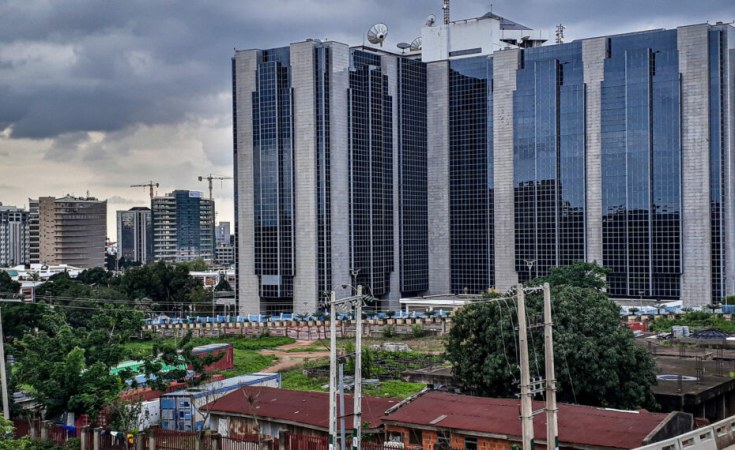Credit loss expense for the apex bank rose to N875.2 billion from N498.2 billion a year earlier, according to its recently released audited earnings report.
The Central Bank of Nigeria (CBN) turned in a higher net profit for 2022, achieved amid a sharp deterioration in the credit quality of its risk assets.
The bank's financial records showed that failure to keep its relationship with the Nigerian government at arm's length, as the banking industry regulator, put its credibility in danger.
Credit loss expense for the banking regulator increased to N875.2 billion from N498.2 billion a year earlier, according to its recently released audited earnings report.
Its lending to the government constituted as much as 74 per cent of the loans and receivables that contributed N610 billion of both the total impairment loss and credit loss expenses for the year.
In a report of their findings that accompanied the document, independent auditors Ernst & Young and KPMG jointly highlighted the bank's impaired loans as the key audit matter of their scrutiny.
"The impairment of loans and advances ... is considered a key audit matter due to the significance of the amount, and the level of subjectivity, uncertainty and complexity involved in estimating the key assumptions that impact the recoverability of the loans and advances," they wrote.
Reckless Lending
The central bank's lending to the Nigerian government through short-term overdrafts known as Ways and Means had ballooned 30 times over to N23.2 trillion between 2015 when former President Muhammadu Buhari took office to the end of last year.
That defies the law allowing not more than 5 per cent of the government's preceding year's revenue to be advanced and requiring that the credit be repaid in the same year of borrowing.
"As at 31 December 2022, the Bank had advanced a total of ₦23.18 trillion to the Federal Government which exceeded the statutory limit by ₦22.9 trillion," the CBN itself admitted in the document.
An eleventh-hour move by the Buhari administration to regularise the borrowing gained legislative approval early May, setting in motion the process for converting the advance into a long-tenor bond repayable in 40 years.
The overdraft will shoot up Nigeria's current debt by half to around N69 trillion when the process is completed.
"The capital market does not have the capacity to absorb 22.7 trillion worth of debt," Bloomberg quoted Adetilewa Adebajo, the chief executive of the consultancy firm CFG Advisory as saying in a report in May.
"It is surprising the Senate" is violating the law, he added.
Godwin Emefiele, under whose watch the malfeasance happened, has been taken into custody by the State Security Service, the government's secret police, on the order of Bola Tinubu, who was inaugurated as president in May. He now faces charges involving possessing firearms without being licensed.
The financials of the CBN has been shrouded in secrecy for years, the last time it issued its annual report being 2015, until Thursday when it published a seven-year backlog of earnings reports.
To bring its activities to light, President Tinubu hired a one-time CEO of the Financial Reporting Council of Nigeria (FRCN) Jim Obazee as the special investigator to undertake a forensic audit of its books.
According to the 2022 financials, the CBN borrowed N3.1 trillion ($7 billion) and N230 billion ($500 million) from big global lenders JP Morgan and Goldman Sachs, summing up to a balance of N3.3 trillion ($7.5 billion) in 2021.
The terms of the securities lending arrangement allow the two lenders to hold the CBN's securities, pledged as collateral, in exchange for the cash it received from the lenders.
Under interest income for the year, the bank vaguely included N1.9 trillion as interest receivable from the Nigerian government on the overdraft facility in question without further details of how it arrived at the figure.
Its profit after tax stood at N103.9 billion relative to N75.1 billion one year prior. Total assets were up 9.5 per cent at N60 trillion.


